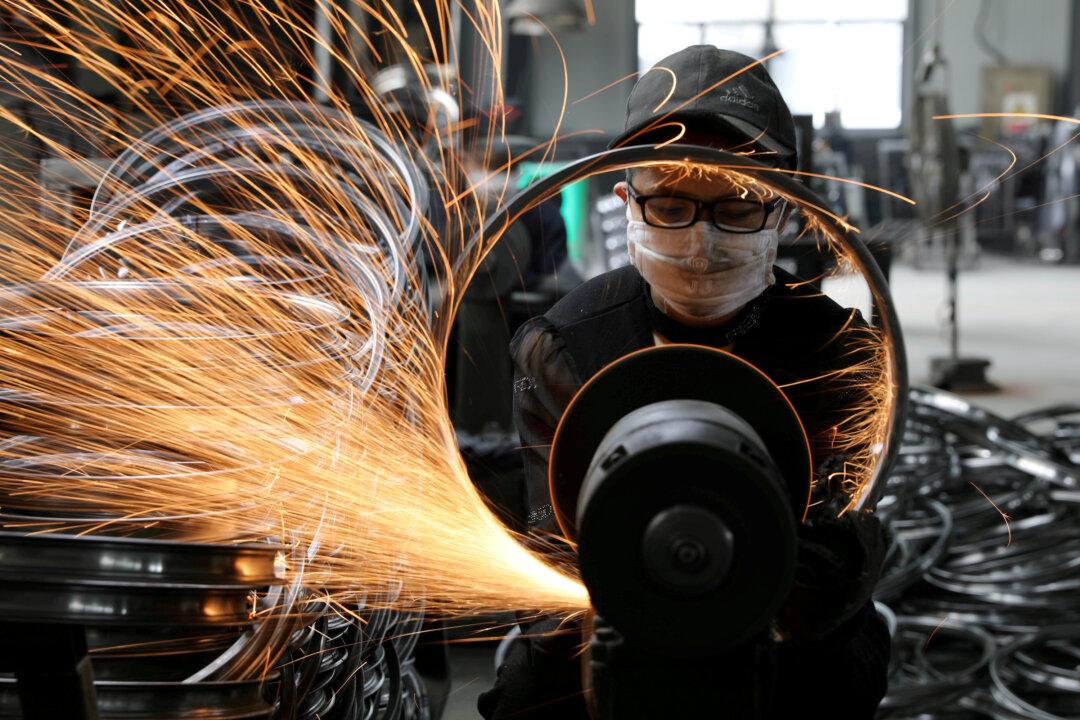BEIJING—China’s factory activity is expected to have contracted for a fifth straight month in September, a Reuters poll showed, adding to the country’s economic woes as Beijing remains locked in an escalating trade war with the United States.
The official Purchasing Managers’ Index (PMI) for September is expected to remain flat at 49.5 from August, according to the median forecasts of 22 economists, below the 50-point mark that separates expansion from contraction on a monthly basis.





